Unwritten Rules Of Wrestling
Unwritten Rules Of Wrestling
There are unwritten rules in baseball, but does wrestling have their own too?
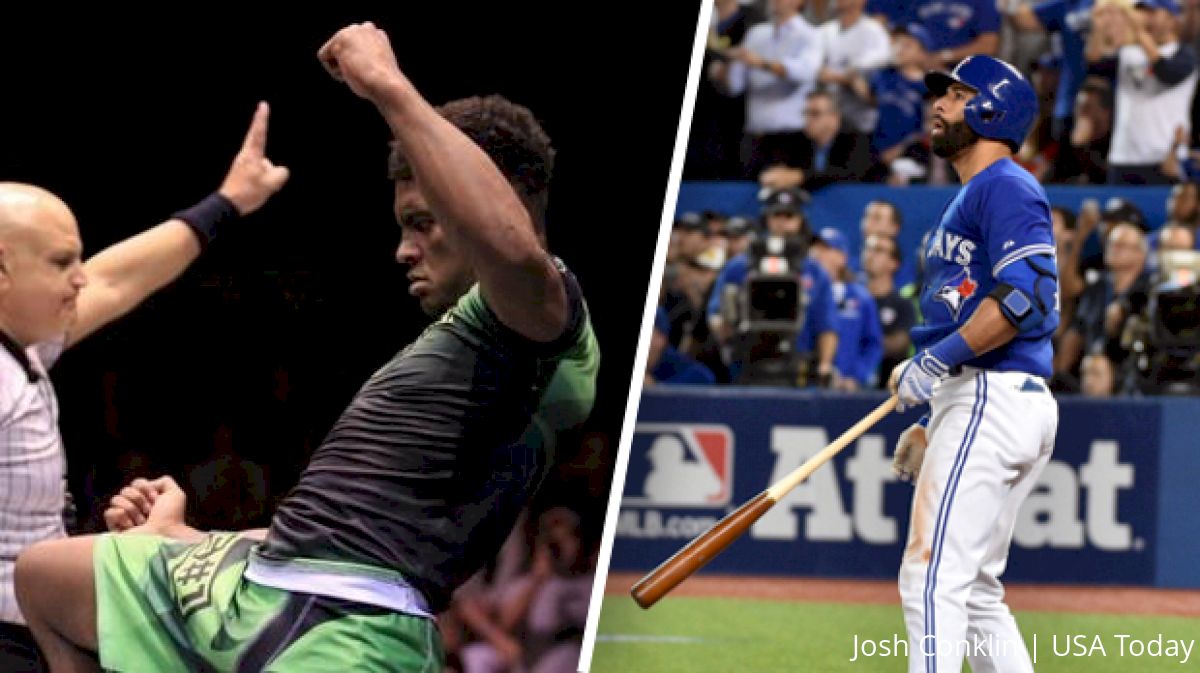
So many times you hear about the "unwritten rules" of baseball and see the backlash of someone violating them. My favorite "violation" of these rules will always be Jose Bautista's legendary bat flip after a home run in the 2015 ALDS that cleared the benches. It was epic.
Other sports certainly have their own set of these rules as well, but do they exist in wrestling as well?
Last week, on Twitter I asked the question of whether or not there are unwritten rules in wrestling like there are in baseball and got a lot of pretty good responses. While I think that some of the responses could be considered more to be quirks about our community, such as tucking your sweatpants into your socks, not wearing ankle socks, or running counterclockwise during warm-ups, there were plenty that of things that we "embrace" as rules in our community.
So let's dive in.
To Celebrate Or Not To Celebrate
When it comes to celebrating we get mixed reviews, but for the most part, the "act like you've been there before" crowd tends to be a bit bigger.
Over the years, we have seen wrestlers celebrate in a number of different ways. From Darion Caldwell's interrupted backflip in celebration of beating Brent Metcalf in the NCAA finals to Reece Humphrey breakdancing to Chad Red hitting them folks (see picture above) after beating Luke Pletcher both at FloNationals and Who's #1, we've had plenty. Those seem to be the ones that get the wrestling purists the most fired up (see photo below).
 But why? Why is it so bad to have character and celebrate a win?
But why? Why is it so bad to have character and celebrate a win?
Recently, we saw Jordan Burroughs defeat Kyle Dake to win another spot on the world team, and Burroughs celebrated it. There was not one comment about JB needing to be more humble in victory or "acting like he's been before." In reality, he really has been there before. But what's the difference. It's emotion. It's passion. It's the person's character coming out. Having personality is what brings flare to our sport.
I guess it all depends on the platform. If you ask me, the more character the better.
The Handshake
Did you ever realize how many times wrestlers shake hands? Well, let's just say it's a lot. This is an actual written rule in the freestyle/Greco handbook. However, in folkstyle the handshaking tour is more of an option. It's not required, so why do we do it?
Yes, I get that it's great to have good sportsmanship and respect, but after a win or a loss most guys want to get off the mat and move on. Even the coaches look a bit irritated waiting to shake a kid's hand, especially after a loss. I understand that this is something small, but this is something that happens an awful lot "just because."
Finish The Match
As wrestlers, we are supposed to be (and think we are) the biggest and baddest athletes around. And with that comes this expectation that you never, ever take the easy way out. If you get slammed, it's OK to take the recovery time, but taking the win by DQ if you can continue to wrestle is not something accepted at all.
Also, being the coach to tell your wrestler not to continue goes right into this as well. Obviously, if you're seriously injured none of this applies. But if you can wrestle, you better strap up and get back out there.
Taking It Easy On A Lesser Opponent
There have been a few times when we have posted videos of an outstanding wrestler playing catch and release against a guy who is not on the same level. For example, we posted a video of two-time cadet world champ Yianni Diakomihalis playing catch and release during a match, and it was met with some negativity where some people felt that it was excessive.
The gist of the argument was that Diakomihalis should have just went out, took the kid down, and pinned him instead of racking up a ton of takedowns and "embarrassing" the kid. Well, I'll play devil's advocate on this one. Yianni proved time and time again that he was head and shoulders above his competition in high school. So going out and pushing himself the only way he could against the competition became his main objective. Going out and pinning a kid in 10 seconds does nothing for either guy.
I understand that practice is where you get your work in, but who said that's where it has to stop. Working on moving and trying things in real-life situations can only make you better. Taking it easy on someone because they aren't on your level could be worse, in my opinion. Even the master was once a beginner, and I'm sure he didn't get to where he was by someone taking it easy on him.
Related Content
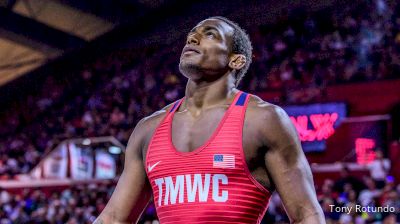 J'den Cox | The Bader Show (Ep. 412)
J'den Cox | The Bader Show (Ep. 412)Apr 25, 2024
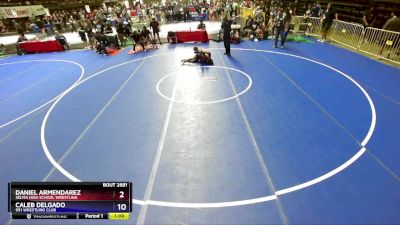 Replay: Mat 13 - 2024 CA Kids/Cadets/ Jr Gr FS | Apr 21 @ 8 AM
Replay: Mat 13 - 2024 CA Kids/Cadets/ Jr Gr FS | Apr 21 @ 8 AMApr 22, 2024
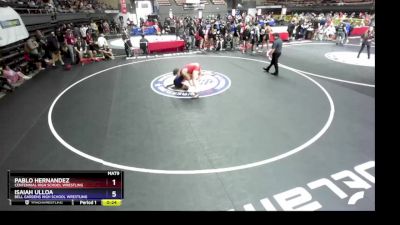 Replay: mat9 - 2024 CA Kids/Cadets/ Jr Gr FS | Apr 21 @ 8 AM
Replay: mat9 - 2024 CA Kids/Cadets/ Jr Gr FS | Apr 21 @ 8 AMApr 22, 2024
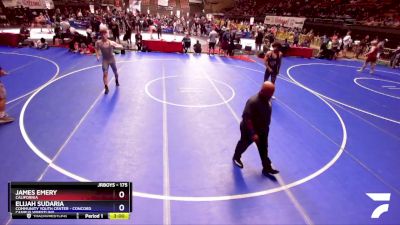 Replay: Mat 14 - 2024 CA Kids/Cadets/ Jr Gr FS | Apr 21 @ 8 AM
Replay: Mat 14 - 2024 CA Kids/Cadets/ Jr Gr FS | Apr 21 @ 8 AMApr 22, 2024
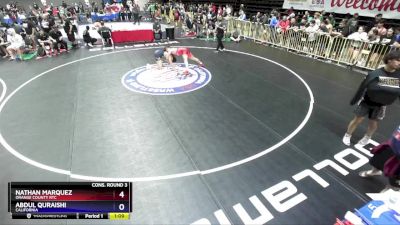 Replay: mat7 - 2024 CA Kids/Cadets/ Jr Gr FS | Apr 21 @ 8 AM
Replay: mat7 - 2024 CA Kids/Cadets/ Jr Gr FS | Apr 21 @ 8 AMApr 22, 2024
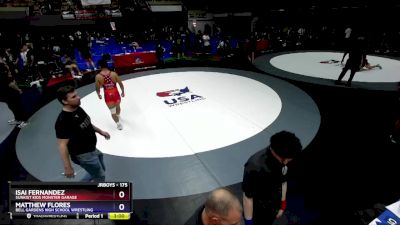 Replay: mat11 - 2024 CA Kids/Cadets/ Jr Gr FS | Apr 21 @ 8 AM
Replay: mat11 - 2024 CA Kids/Cadets/ Jr Gr FS | Apr 21 @ 8 AMApr 22, 2024
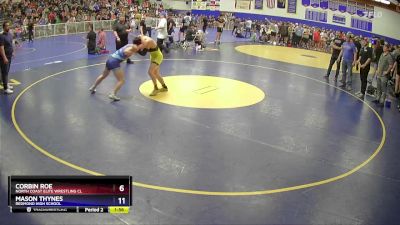 Replay: Mat 6 - 2024 OWA State Championships 2024 | Apr 21 @ 12 PM
Replay: Mat 6 - 2024 OWA State Championships 2024 | Apr 21 @ 12 PMApr 22, 2024
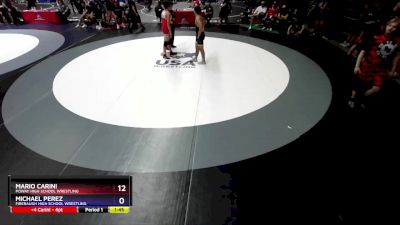 Replay: mat6 - 2024 CA Kids/Cadets/ Jr Gr FS | Apr 21 @ 8 AM
Replay: mat6 - 2024 CA Kids/Cadets/ Jr Gr FS | Apr 21 @ 8 AMApr 22, 2024
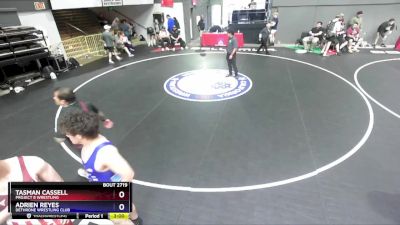 Replay: mat3 - 2024 CA Kids/Cadets/ Jr Gr FS | Apr 21 @ 8 AM
Replay: mat3 - 2024 CA Kids/Cadets/ Jr Gr FS | Apr 21 @ 8 AMApr 22, 2024